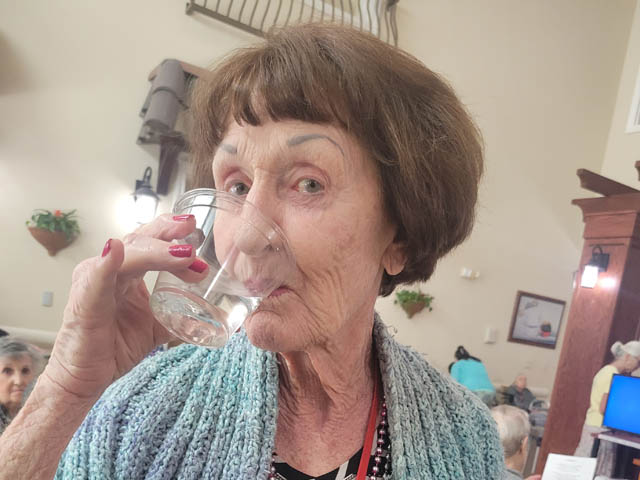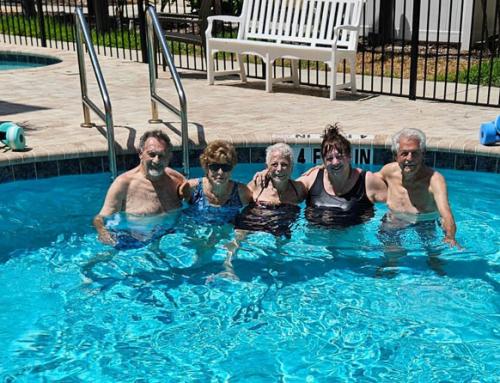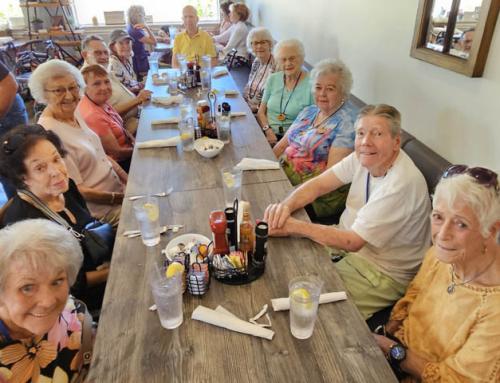Why Dehydration is a Serious Health Concern for Seniors

Many seniors do not drink adequate amounts of fluids during the day, leading to dehydration, which is harmful and can have serious consequences. Our bodies need water to regulate temperature, maintain blood pressure and eliminate toxins and waste. Even mild dehydration can affect concentration, memory and reaction times. Other complications of dehydration include weakness, dizziness and an increased risk of falls.
If you’re caring for a senior loved one, it’s essential to know how to prevent, recognize and treat signs of dehydration.
Why are seniors more likely to suffer from dehydration?
As we age, our sense of thirst can decrease or practically disappear. When seniors don’t feel thirsty, they tend to drink less water than they should. In addition, seniors with dementia may simply forget and need to be reminded to drink water.
As our bodies age, the kidneys can stop processing fluids properly, leading to more trips to the bathroom and a more significant loss of fluids. Common illnesses such as a cold, vomiting, and diarrhea can increase the risk of developing dehydration.
Dehydration can also be a side effect of the medications seniors take for various health conditions. Even limited mobility can contribute to dehydration, as seniors who have difficulty walking may be less likely to get water for themselves.
Know the signs and symptoms of dehydration
The signs of dehydration aren’t always obvious and range from mild to severe.
Mild dehydration symptoms are:
- Dry mouth or dry tongue
- Dark or deep yellow urine or inability to urinate
- Muscle cramps
- Headaches
- Crying with few or no tears
- Weakness
- Irritability
- Sleepiness
Severe dehydration symptoms are:
- Low blood pressure
- Convulsions
- Severe cramping
- Stomach bloating
- Rapid yet weak pulse
- Dry and sunken eyes
- Wrinkled skin with no elasticity
- Rapid breathing
What to do if your senior loved one is dehydrated?
Fortunately, mild dehydration can be addressed by simply increasing fluid intake. If your senior loved one starts drinking more fluids, the dehydration will resolve itself within a few hours. However, in severe dehydration, the best thing to do is to seek medical attention.
If you’re concerned about your senior loved one’s ability to stay hydrated, or if you need any other help in improving their quality of life, please get in touch with Aravilla Sarasota Memory Care today! We will be happy to explain how we monitor our residents’ health and integrate daily patterns and routines to protect their hydration, health and happiness each day!



